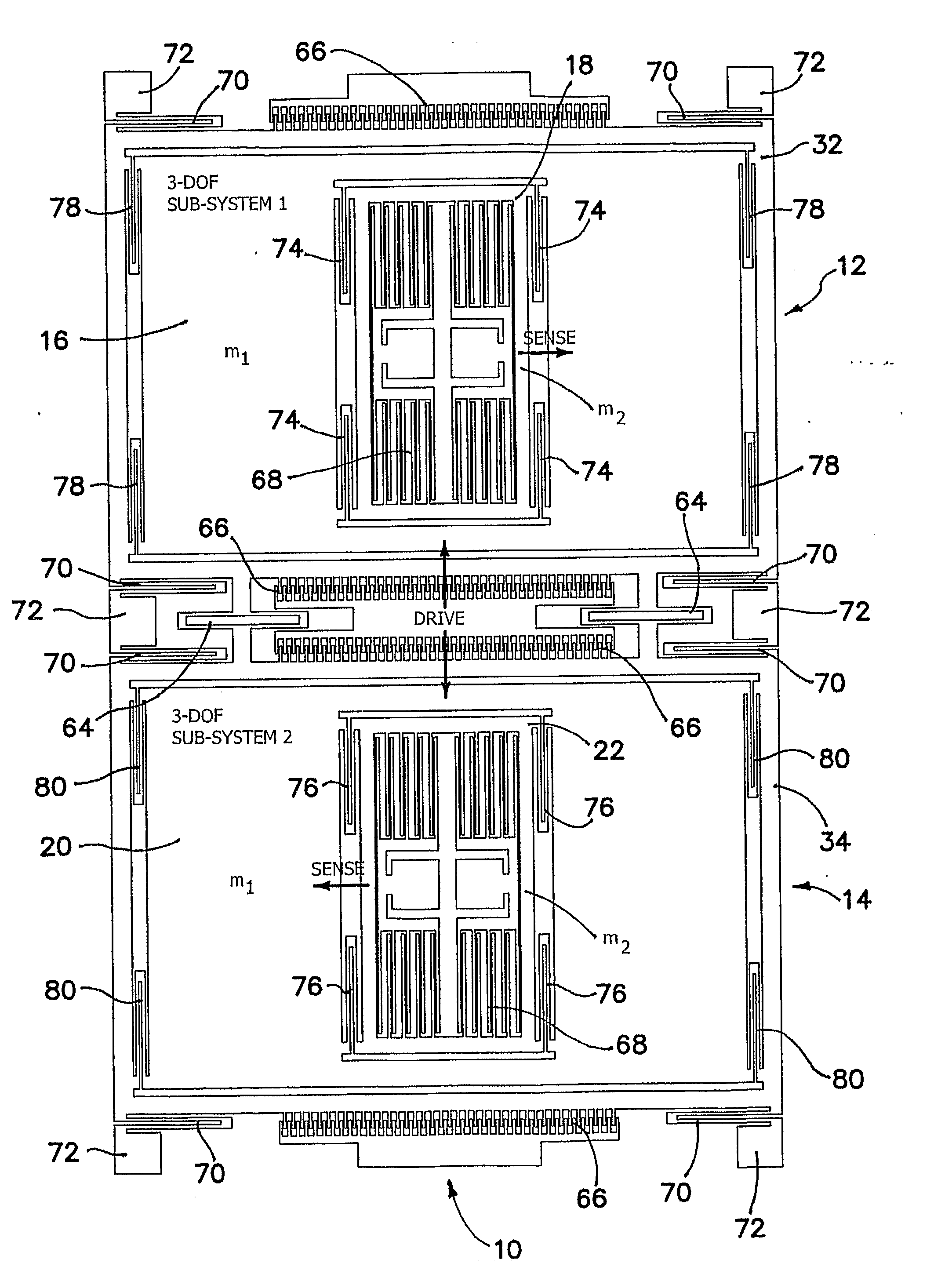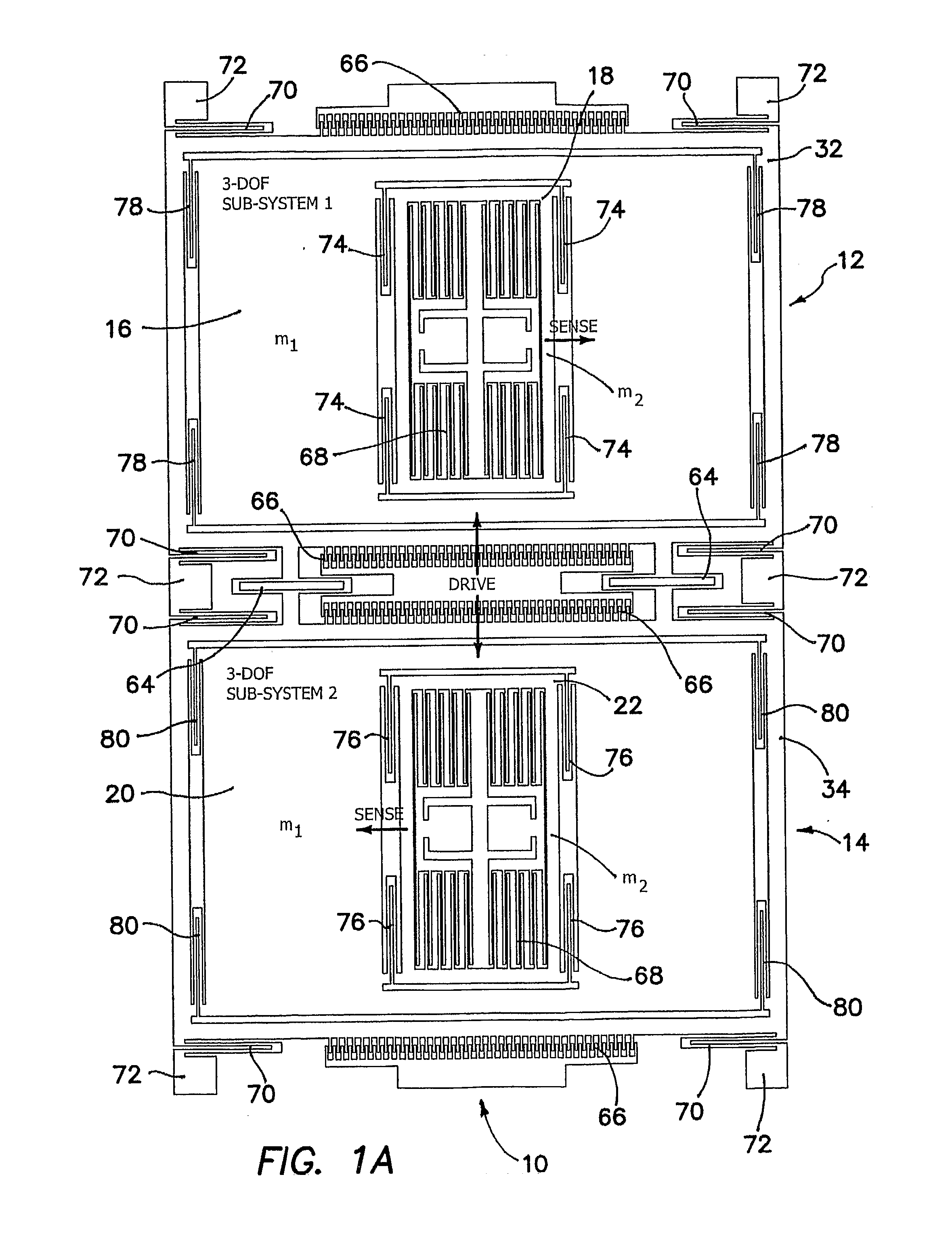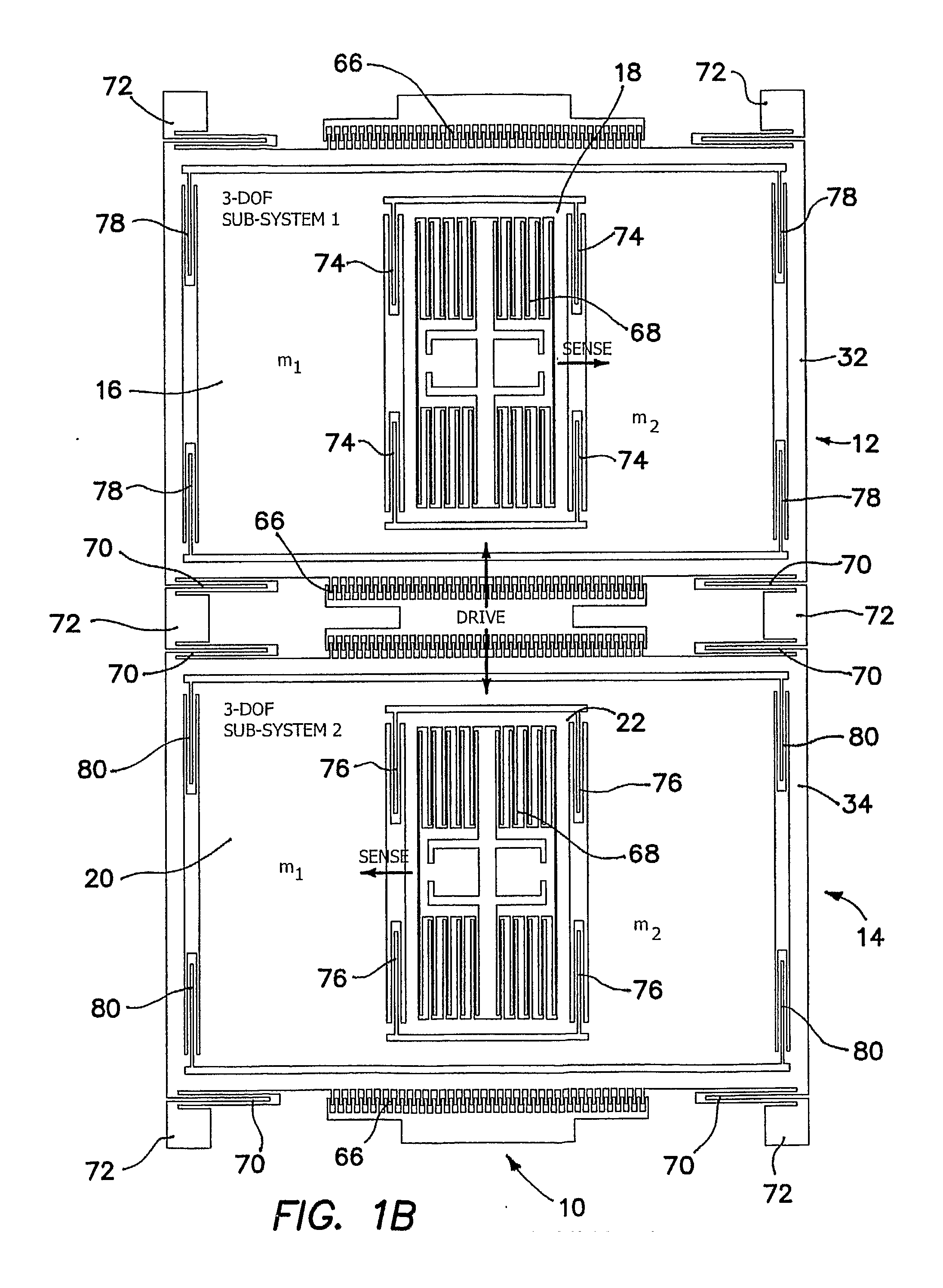Robust Six Degree-of-Freedom Micromachined Gyroscope with Anti-Phase Drive Scheme and Mehtod of Operation of the Same
a gyroscope and anti-phase technology, applied in the direction of turn-sensitive devices, acceleration measurement in multiple dimensions, instruments, etc., can solve the problems of adding complexity to the system, unable to maintain precise anti-phase motion in both the drive and the sense directions, and the device can indeed reject, so as to achieve the effect of effective or substantially rejecting common-mode stimuli
- Summary
- Abstract
- Description
- Claims
- Application Information
AI Technical Summary
Benefits of technology
Problems solved by technology
Method used
Image
Examples
Embodiment Construction
[0027]The problem to which the illustrated invention is addressed is the susceptibility of the sense-mode response amplitude and phase of conventional micromachined gyroscopes to environmental and fabrication variations. A conventional gyroscope is typically comprised of a mass (or masses) constrained to move in two modes: the drive and sense directions, assumed by convention to the x and y directions respectively in a planar coordinate reference frame. It is assumed that there is no motion in the direction orthogonal to these modes and thus has two degrees of freedom. The drive and sense modes are orthogonal to each other so that when the mass is driven by forced vibration, there should be no motion in the sense direction. The sense mode is excited by the sinusoidal Coriolis force induced in the presence of an angular rate orthogonal to both the drive and sense directions. The amount of the sense mode response is directly related to the drive velocity, the input angular rate, and t...
PUM
 Login to View More
Login to View More Abstract
Description
Claims
Application Information
 Login to View More
Login to View More - R&D
- Intellectual Property
- Life Sciences
- Materials
- Tech Scout
- Unparalleled Data Quality
- Higher Quality Content
- 60% Fewer Hallucinations
Browse by: Latest US Patents, China's latest patents, Technical Efficacy Thesaurus, Application Domain, Technology Topic, Popular Technical Reports.
© 2025 PatSnap. All rights reserved.Legal|Privacy policy|Modern Slavery Act Transparency Statement|Sitemap|About US| Contact US: help@patsnap.com



